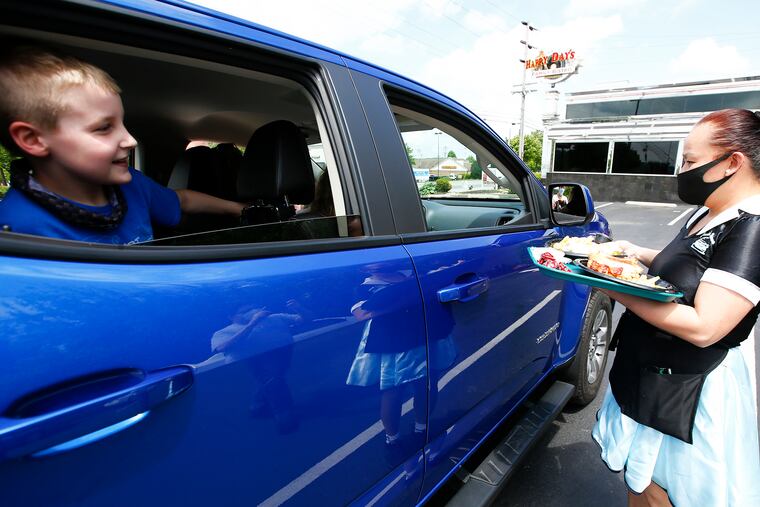Coronavirus continues to sicken and kill; N.J. churches sue governor
Falling daily numbers of cases and deaths in many areas have created hope, but more than a dozen states have seen rising counts, and some places that celebrated their reopening are now scaling back.

Christian advocates followed through on a promise to sue New Jersey Gov. Phil Murphy over restrictions on in-person services during the pandemic, claiming his closure orders violate their First Amendment right to the exercise of religion.
More than two dozen churches jointly filed the federal lawsuit Friday, seeking to overturn limits that have effectively halted traditional services for more than two months.
The suit is part of a broader, national push by houses of worship to open their doors with accompanying safety precautions, and came on the same day the U.S. Supreme Court ruled against a church in California that sought to circumvent COVID-19 restrictions. New Jersey churches fell under a prohibition on indoor gatherings of more than 10 people, aimed at trying to slow the spread of a virus that’s now killed more than 103,000 Americans, including more than 11,000 in New Jersey.
On Saturday, the coronavirus’ deadly march was pushed off front pages for the first time in months, as the country’s attention turned to the fiery protests ignited in Philadelphia and other cities by the police killing of George Floyd in Minneapolis.
The virus itself took no pause. As of Saturday more than 1.7 million Americans have tested positive, nearly four times that of second-place Brazil, according to Johns Hopkins University.
New Jersey officials reported 910 new cases on Saturday, for a total of 159,608. And 113 more people died, raising the toll in the state to 11,634. Brigantine police had to shut down access to Jetty Beach because of overcrowding. It was not clear when the beach, at Brigantine’s southernmost point, might reopen.
Pennsylvania health authorities reported 680 more cases for a total of 71,415. The death count stood at 5,537.
Philadelphia officials announced 224 new infections Saturday, marking the fourth day in the last week that the city had more than 200 cases — even as leaders plan to move into the first phase of reopening next week.
The new cases raised the city total to 22,629, and six new fatalities brought the death toll to 1,278.
Falling daily numbers of cases and deaths in many areas have created hope, but more than a dozen states have seen rising counts, and some places that celebrated their reopening are now scaling back.
For instance, tiny, 30,000-person Lassen County in Northern California was among the first in the state to reopen in early May, but has had to reverse course because of a resulting outbreak, the Huffington Post reported.
“While Lassen County had no confirmed cases for the past three months, we were fully aware of the risk that the virus could come to our community,” the county public-health officer, Dr. Kenneth Korver, told the Huffington news site. “Unfortunately, this did happen and we now have a serious problem.”
» READ MORE: With the pandemic, a possible end to a program that gives immigrants a fighting chance in court
In a positive sign in Pennsylvania, 18 counties now have moved to the color-coded “green” phase of reopening, and 16 more will do so next week. In the Bradford County community of Sayre, the shift to green made Friday night seem like, well, Friday night.
» READ MORE: Immigrant health-care workers fight the pandemic as possible deportation looms
Some customers wore masks when they entered Blue Stone Brewing, but they didn’t have to keep them on — and none did. Dine-in eating and a loosening of mask requirements were among the restrictions that were lifted Friday morning.
Some officials in the Philadelphia area remain skeptical of the push to move Southeastern Pennsylvania to “yellow” on Friday.
As hard-hit Philadelphia prepared to enter the yellow phase, the Kenney administration’s new “Safer at Home” guidelines aim to create additional time for recovery and safety.
The administration recommends no social or religious gatherings during the first phase of reopening, in which parts of the economy including office-based businesses, manufacturing, and retail can restart. Customers entering businesses will be offered hand sanitizer, employees will wipe down surfaces every four hours, and owners will limit capacity to five people per 1,000 square feet.
In announcing a “mini-step forward,” Mayor Jim Kenney said the incremental loosening of restrictions does not mean the city has beaten the coronavirus. Residents must continue social distancing and wearing masks.